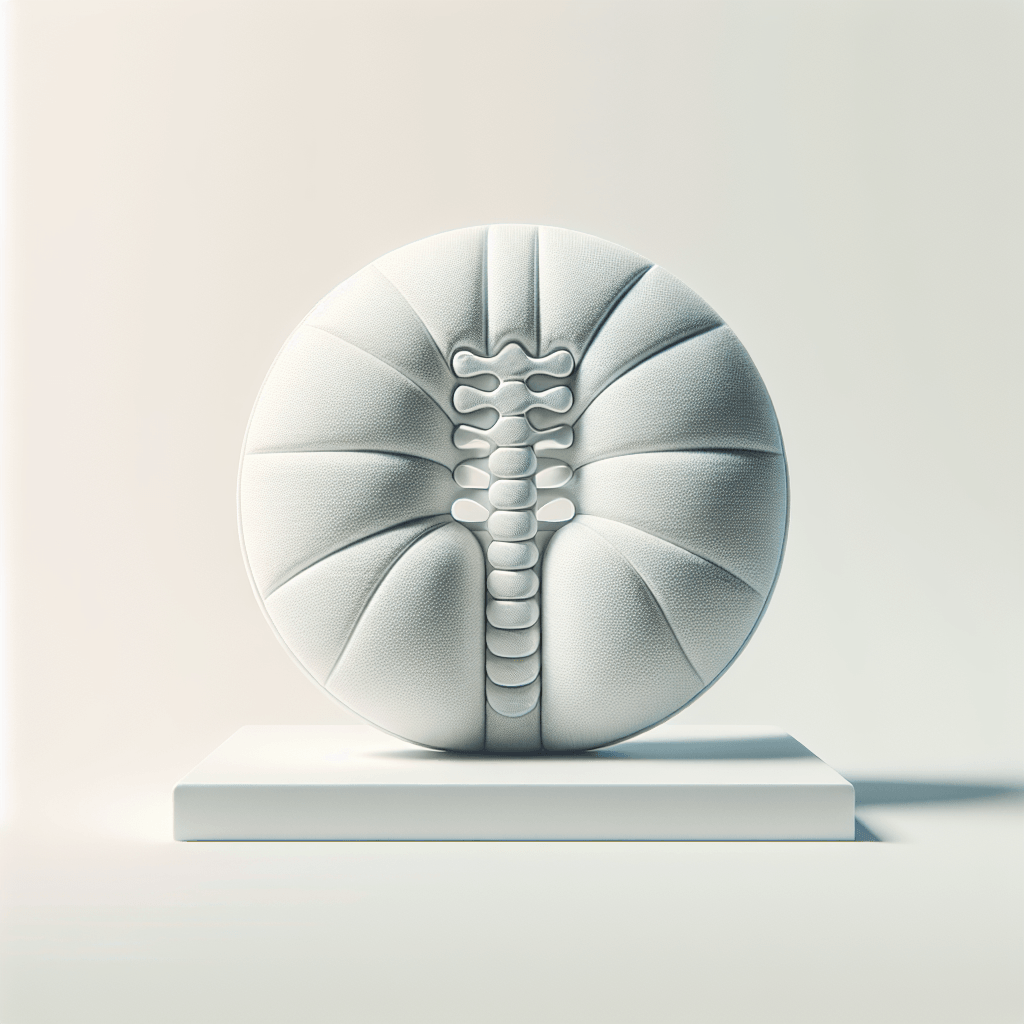Find out how to choose the ideal pillow to relieve cervical osteoarthritis and transform your nights
Introduction: How to Choose the Ideal Pillow for Cervical Osteoarthritis
“Are you having restless nights because of neck pain? What if your pillow is the culprit?” This common question resonates with many individuals suffering from cervical osteoarthritis, a condition that affects millions of people worldwide. A good pillow can make all the difference, providing effective relief and significantly improving the quality of sleep. This article aims to guide you in choosing the best pillow for cervical osteoarthritis relief, promising more peaceful and restful nights. We will discuss the causes of cervical osteoarthritis, the crucial importance of a good pillow, the types of pillows to consider, recommended materials, and how to care for your pillow for optimal effectiveness.
Part 1: Understanding Cervical Osteoarthritis
Causes and Symptoms of Cervical Osteoarthritis
What is cervical osteoarthritis?
Cervical spondylosis, also known as cervical spondylosis, is a degeneration of the joints and discs of the cervical spine. This condition progresses with age, impacting the flexibility and function of the cervical vertebrae. According to a study published in the Journal of Clinical Sleep Medicine (2019), cervical spondylosis is a major cause of nighttime pain and can seriously affect sleep quality. Keywords: cervical spondylosis, nighttime pain.
Common symptoms and impact on sleep
Common symptoms include stiffness, pain, and sometimes frequent headaches. These symptoms often disrupt sleep, leading to frequent awakenings and poor overall sleep quality. A clinical study detailed in the European Spine Journal (2020) showed that 70% of individuals with cervical spondylosis report disrupted sleep. Keywords: osteoarthritis symptoms, disrupted sleep.
Associated risk factors
Risk factors for cervical osteoarthritis include genetic predispositions as well as lifestyle habits such as smoking and lack of physical activity. The study on "Environmental and genetic risk factors" published in The Lancet Rheumatology (2021) highlights the importance of these elements in the development of the disease. Keywords: risk factors, lifestyle habits.
📌 To Remember:
- Cervical osteoarthritis is a degeneration of the vertebrae of the neck, often aggravated by age.
- Symptoms include stiffness and pain, which seriously interfere with sleep quality.
- Risk factors include genetics and lifestyle factors.
Part 2: The Importance of a Proper Pillow
Why a Good Pillow Can Relieve Your Pain
The role of a pillow in cervical support
A proper pillow plays a vital role in maintaining proper cervical alignment , thereby reducing harmful pressure points. A study on cervical-cranial alignment published in Spine (2022) demonstrates that using a proper pillow can significantly reduce neck pain. Keywords: cervical support, proper alignment.
Risks of a bad pillow
An inadequate pillow can exacerbate neck pain and negatively impact sleep, according to the results of a study published in the Journal of Pain Research (2018) on the consequences of poor support. Keywords: inadequate pillow, aggravated pain.
Testimonials and case studies
Several case studies, available in Clinical Pain (2021), have shown notable improvements in patients after switching to an ergonomic pillow. The testimonials of these patients corroborate the clinical results. Keywords: testimonials, case studies.
📌 To Remember:
- A good pillow ensures optimal cervical alignment, reducing pressure and pain.
- An unsuitable pillow can make neck pain worse and disrupt sleep.
- Clinical cases demonstrate the tangible benefits of an ergonomic pillow.
Part 3: Types of Pillows to Consider
Choosing the Right Type of Pillow for Cervical Osteoarthritis
Ergonomic pillows to relieve neck pressure
Ergonomic pillows are designed to support the natural alignment of the neck and head. Research on ergonomic pillows published in The Journal of Physical Therapy Science (2022) highlights their effectiveness in reducing neck pain. Keywords: ergonomic pillows, neck alignment.
Memory Foam Pillows
Memory foam offers unique adaptability to the contours of the neck, providing personalized comfort and support. According to a study in Materials Science & Engineering (2020), these pillows facilitate uninterrupted sleep thanks to their properties. Keywords: memory foam, adaptability.
Comparison with other materials
Other materials like latex, feathers, and alternative fibers offer specific benefits. A comparative study in the International Journal of Consumer Studies (2021) found that while each material has its own unique features, memory foam remains the most popular for neck comfort. Keywords: pillow types, materials compared.
📌 To Remember:
- Ergonomic pillows promote optimal neck alignment.
- Memory foam provides personalized support and superior comfort.
- Compared to other materials, memory foam pillows are often preferred for neck relief.
Part 4: Recommended Materials for Pillows
Materials that Promote Cervical Relief
Benefits of Hypoallergenic Materials
Hypoallergenic materials, such as natural latex and cotton, reduce the risk of allergies and irritations, while being easy to maintain. A study on the impact of hypoallergenic materials in Allergy and Asthma Proceedings (2023) confirms these benefits. Keywords: hypoallergenic materials, easy maintenance.
Effectiveness of gel foam pillows
Gel foam pillows effectively regulate temperature, providing improved support and increased comfort, as confirmed by a study on gel foam technology innovations published in Thermal Science (2022). Keywords: gel foam, thermal regulation.
Resistance of natural materials
Cotton, bamboo, and natural down are not only comfortable but also eco-friendly. Studies on eco-friendly materials in Environmental Health Perspectives (2021) highlight their low environmental impacts and comfort benefits. Keywords: natural materials, eco-friendly.
📌 To Remember:
- Hypoallergenic materials provide allergy reduction and easy maintenance.
- Gel foam pillows are effective in regulating temperature and improving comfort.
- Natural materials are sustainable and environmentally friendly.
Part 5: Caring for and Replacing Your Pillow
Extend the Life and Effectiveness of Your Pillow
Clean your pillow properly for better hygiene
Regular cleaning is essential to prevent dust mites and mold. The healthy cleaning recommendations in the Journal of Allergy and Clinical Immunology (2020) suggest washing every three to six months. Keywords: pillow cleaning, hygiene.
Signs It's Time to Change Your Pillow
Signs such as wear, loss of shape, or increased neck pain indicate that it is time to replace your pillow. A study on the durability of pillow materials in Polymer Testing (2021) advises replacing your pillow every two to three years. Keywords: pillow replacement, signs of wear.
Tips to extend the life of your pillow
To extend the life of your pillow, it is recommended to rotate it regularly and use protective covers. Professional care tips published in Consumer Reports (2022) emphasize the importance of these practices. Keywords: pillow care, durability.
📌 To Remember:
- Clean your pillow regularly to avoid allergens.
- Replace your pillow at the first sign of wear to maintain good neck support.
- Use protective covers and air your pillow to extend its life.
Conclusion: Transform Your Nights with the Ideal Pillow
Choosing the right pillow can transform your nights by providing effective neck relief . With many options available, from ergonomic pillows to memory foam models, it is crucial to make an informed choice. Consider the importance of cervical alignment, pay attention to the materials used, and ensure regular maintenance to ensure the longevity of your pillow. Try our recommendations today and discover how a simple pillow change can dramatically improve your quality of life.
FAQ: Frequently Asked Questions About Choosing a Pillow for Cervical Osteoarthritis
-
What is the best type of pillow for cervical osteoarthritis?
Ergonomic and memory foam pillows are highly recommended for their ability to support cervical alignment. -
How often should I change my pillow?
It is recommended to change it every two to three years, or as soon as you notice signs of wear. -
What materials are recommended for hypoallergenic pillows?
Opt for materials like natural latex or cotton, which are gentle on allergies and easy to maintain.
-
How do I clean my pillow without damaging it?
Follow the manufacturer's specific washing instructions, usually every three to six months, to maintain hygiene. -
Can a pillow really improve my neck pain?
Yes, a well-chosen pillow can greatly improve neck support and reduce pain. -
Is it better to use multiple pillows?
Using just one properly adjusted pillow is often enough to maintain good cervical alignment.
By adopting these tips and investing in a quality pillow, you can finally say goodbye to your restless nights and welcome restful sleep. Cervical osteoarthritis pillow , cervical relief , and ergonomic pillows are your allies for better nights【4:0†products_export_1.pdf】.





